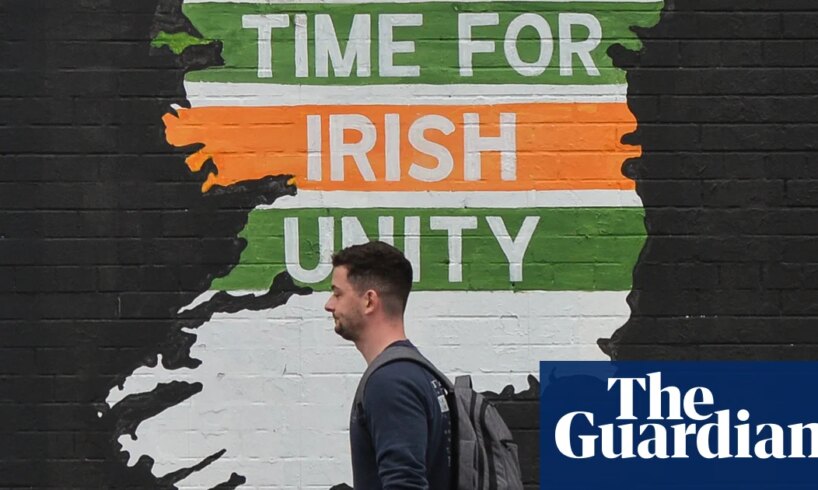
A decade after the UK stumbled into a hasty referendum that polarised the nation and unleashed chaos, a warning comes from across the Irish Sea: it could happen again.
The government and voters sleepwalked into Brexit and the same may happen with a referendum on a united Ireland, triggering convulsions for which no one is ready.
That is the message from two leading journalists from both sides of the Irish border who have teamed up to analyse the pros and cons of Northern Ireland leaving the UK to form a new state with the Republic of Ireland.
Fintan O’Toole, the author and Irish Times columnist, and Sam McBride, the Northern Ireland editor of the Belfast Telegraph, have concluded that the political establishments in Ireland and Britain are woefully unprepared for a potentially fraught and seismic referendum.
“The lesson of Brexit hasn’t been learned, which is that stuff can come out of the blue and can gather momentum very quickly,” O’Toole said this week. “I would suggest that the political architecture of our archipelago remains very unstable.”
The pair have analysed the political, economic and cultural rationales for any constitutional change in a book, For and Against a United Ireland, published by the Dublin-based Royal Irish Academy and the University of Notre Dame under their project Analysing and Researching Ireland, North and South (Arins).
They hope to stir debate on the issue with a roadshow of speaking events that will bring them to Westminster early next month on the eve of the centenary of a Boundary Commission that cemented Ireland’s partition.
“What haunts everybody, or should haunt everybody, is the Brexit referendum of 2016,” said O’Toole.
“We do not want a referendum on a thumbs up-thumbs down, vague proposition whose consequences have not been spelled out because then you find yourself with an extraordinarily divided society where people who have lost are not reconciled to losing and the people who have won don’t know quite what it is that they have won.”
Under the Good Friday agreement, the Northern Ireland secretary of state should call a referendum on Irish unification if it appears likely that a majority would vote in favour.
Sinn Féin and other nationalists say that moment is looming, and a non-profit called Ireland’s Future has rallied support, but both governments and unionists play down the prospect, leaving it unclear when or if there will be a referendum.
Political rhetoric for and against unification has obscured the lack of serious debate, said McBride.
“People tend to be for or against the idea but the actual thinking which might go beyond that to make it possible hasn’t for the most part happened. A lot has gone on in academia but very few politicians or activists want to engage even with the basics. For instance, what sort of state would you want? Unitary? Federal?”
In the book, neither author endorses unification or the status quo. Each writes two essays that strive for impartiality in laying out the case for a united Ireland and the case against, marshalling economic and social statistics, historical precedents and constitutional models.
Arguments range over flags and symbols, taxes, health services, pensions, national debt responsibilities and the risk of loyalist violence. The goal is to inform and provoke discussion.
“There’s huge interest in the subject but there hasn’t quite been a debate,” said O’Toole. “Debate implies an acceptance of the idea that there might be good arguments on both sides.”
A referendum in Northern Ireland would also trigger one in the republic, where voters say they favour unification but reject paying higher taxes or adopting a new flag to reflect unionists’ British identity.
“The Irish government does need to work out what the offer from Irish nationalism is beyond just saying: ‘We want a united Ireland and we love you’,” said O’Toole.
McBride believes a referendum in his lifetime is likely and that it could happen abruptly. “You could have just a mad or a bad or a feckless secretary of state who says: ‘Let’s just do this and get it out of the way.’”
Both nationalists and unionists have credible, legitimate arguments, he said. “Somebody will win here and somebody will ultimately lose but each side has got something to learn from the other’s arguments.”
Westminster needed to join the debate, said O’Toole. “This is about your state. It’s a British question as much as it is an Irish question.”





